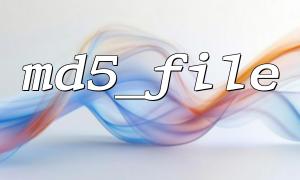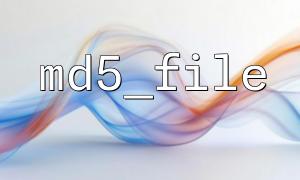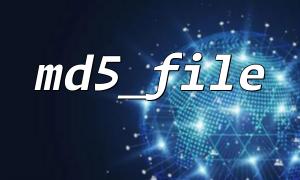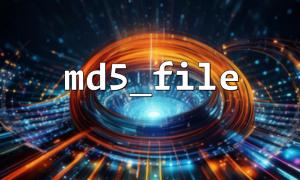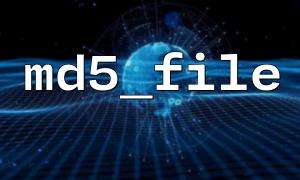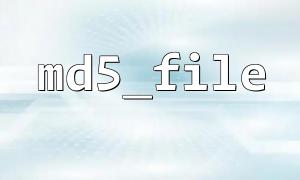In PHP development, the md5_file() function is often used to generate MD5 hash values of file content. This approach is very common in scenarios such as file integrity verification and cache identifier generation. However, with the development of information security technology, the weaknesses of the MD5 hash algorithm have gradually been exposed. We have to think about one question now:
MD5 (Message-Digest Algorithm 5) was originally proposed by Ronald Rivest in 1991 to generate a 128-bit hash value. At the beginning of design, it was used for digital signatures, checksums and other purposes. However, after years of research and practice, MD5 is no longer considered a secure cryptographic hashing algorithm.
Since 2004, researchers have been able to construct a Collision Attack —that is, two different inputs can produce the same MD5 hash. This attack means you can no longer rely on MD5 hashs to verify the uniqueness of files or data, especially in securely sensitive scenarios.
The md5_file() function in PHP receives a file path and returns an MD5 hash of the contents of the file:
<?php
$hash = md5_file('https://m66.net/files/sample.pdf');
echo $hash;
?>
The above code looks simple and easy to use, but it faces two key problems:
Insufficient security : As mentioned earlier, MD5 is vulnerable to collision attacks, and an attacker may forge a file with different content but has the same hash value to bypass the verification mechanism.
Lack of anti-preimage attack capabilities : Attackers can even find an "alternative file" with the same MD5 value to deceive downloads, verifications and other operations.
These risks can lead to serious security vulnerabilities when you are using md5_file() to verify remote resources, user upload files, or for authorization verification.
To solve the security problems of MD5, PHP provides more powerful hashing algorithm support. The most common alternatives include:
<?php
$hash = hash_file('sha256', 'https://m66.net/files/sample.pdf');
echo $hash;
?>
The hash_file() function supports a variety of hash algorithms, such as SHA-1, SHA-256, SHA-512, etc. SHA-256 is currently widely accepted security hashing standard, and its collision resistance and preimage attack resistance are much better than MD5.
If you also need to sign and verify the file, you can use a hash with a key:
<?php
$key = 'secret_key';
$hash = hash_hmac_file('sha256', 'https://m66.net/files/sample.pdf', $key);
echo $hash;
?>
This not only verifies whether the file content has been tampered with, but also verifies whether the request comes from a trusted source.
MD5 can still be used in non-secure scenarios such as generating simple identifiers for caches, but with caution. Do not use it for the following purposes:
File integrity verification
Digital signature or verification
User password storage
Security Token Generation
Although md5_file() looks convenient and fast in some scenarios, its security issues cannot be ignored. When designing and implementing modern PHP applications, we should turn to safer alternatives such as hash_file() , especially when dealing with sensitive data or critical business logic.
Security cannot rely on "looks alright", but should be based on solid algorithmic foundations. It's time to give up md5_file() and move towards a safer hashing practice.





